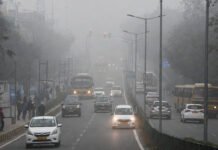
Delhi Residents Seek Mental Health Support: Relationship Issues and Anxiety Top Concerns in the Age Group 26 to 40-year-olds
Evolving Mental Health Landscape in Delhi: Key Findings from Mpower Mental Health Helpline
Delhi, January 17, 2025 – In an era marked by rapid urbanization and shifting societal norms, the mental health landscape in Delhi is evolving rapidly. A comprehensive analysis by Mpower, a unit of the Aditya Birla Education Trust, sheds light on the mounting mental health challenges facing Delhi residents, particularly those aged 26 to 40. This analysis, derived from over 1,08,779 calls to Mpower’s mental health helpline, reveals a stark reality: relationship issues and anxiety are the top concerns among this demographic.
Relationship Issues: A Growing Concern
Relationship challenges emerged as the primary concern for 27% of callers from Delhi, reflecting the profound impact of interpersonal dynamics on mental health. The fast-paced, competitive environment of urban living, coupled with shifting cultural expectations, appears to be placing immense pressure on personal relationships. Factors such as career demands, financial pressures, and changing societal roles contribute to the complexity of maintaining healthy relationships in the city.
Anxiety: A Close Second
Closely following relationship issues, anxiety accounted for 26% of the concerns among callers. The high prevalence of anxiety among Delhi residents underscores the pervasive nature of stress and mental health challenges in contemporary urban life. The pressures of a competitive job market, societal expectations, and the fast-paced lifestyle contribute significantly to the rising anxiety levels among the 26 to 40 age group.
Mental Health Trends Among Different Age Groups
While individuals aged 26 to 40 form the largest segment of callers (52%), the younger demographic, particularly those aged 18 to 25, also presents a significant proportion of callers (36%). This highlights the urgent need for tailored mental health interventions targeting young adults, who are navigating critical life transitions, including education, career beginnings, and early relationship challenges.
Gender Disparities in Mental Health Concerns
Interestingly, women constitute 51% of the callers seeking mental health support, while men account for 41%. This gender disparity indicates the growing recognition of mental health issues among women in Delhi, possibly influenced by societal changes and increased awareness.
Unique Mental Health Profile of Delhi Residents
Compared to national trends, Delhi exhibits a distinct mental health profile. The proportion of callers in the 26-40 age group in Delhi (52%) is significantly higher than the national average of 39%. This trend underscores the specific mental health challenges faced by residents of a bustling metropolis like Delhi, where the pressures of urban living are more pronounced.
Relationship Problems: A More Prominent Concern
The prominence of relationship issues among Delhi residents reflects the unique pressures of urban life. The complexities of balancing professional ambitions with personal commitments create a fertile ground for interpersonal conflicts. Moreover, the influence of technology and social media on relationships cannot be ignored, as it often amplifies the challenges of communication and trust.
The Role of Young Adults in Shaping Mental Health Trends
The significant number of calls from the 18-25 age group reveals an urgent need for early mental health interventions. Young adults are particularly vulnerable to mental health challenges as they transition from adolescence to adulthood. The findings suggest that tailored support systems, including counseling and peer support networks, could play a vital role in addressing the mental health needs of this demographic.
Expert Insights: Strategies for Managing Mental Health Stressors
Dr. Ankit Gautam, a psychiatrist at Mpower’s Delhi center, emphasizes the importance of building resilience to manage common mental health stressors. Dr. Gautam suggests several strategies for improving mental health, including:
- Meditation and Yoga: Incorporating mindfulness practices can help individuals manage stress and anxiety effectively.
- Regular Physical Exercise: Physical activity is known to have a positive impact on mental well-being, reducing symptoms of depression and anxiety.
- Healthy Diet and Sleep Hygiene: Maintaining a balanced diet and ensuring adequate sleep are crucial for overall mental health.
- Strong Social Support Networks: Cultivating meaningful relationships and seeking support from friends and family can provide emotional stability and resilience.
- Professional Support: Dr. Gautam stresses the importance of seeking professional help when necessary. Early intervention can prevent common stressors from developing into more serious conditions like Major Depressive Disorder or Addiction Disorders.
The Role of Mpower in Transforming Mental Health Care
Mpower, an initiative of the Aditya Birla Education Trust, has been at the forefront of transforming India’s approach to mental health. Over the past eight years, Mpower has emerged as a leading force in spreading awareness, reducing stigma, and delivering holistic mental health care. The organization’s integrated approach, which includes collaboration with government agencies, underscores its commitment to creating a supportive and stigma-free mental health landscape in India.
A Call to Action
The insights from Mpower’s mental health helpline data paint a vivid picture of the evolving mental health landscape in Delhi. As relationship issues and anxiety continue to dominate the concerns of the 26 to 40 age group, it is imperative to address these challenges through targeted interventions, increased awareness, and accessible mental health resources. By fostering resilience and promoting early intervention, Delhi can pave the way for a healthier, more mentally resilient population.















